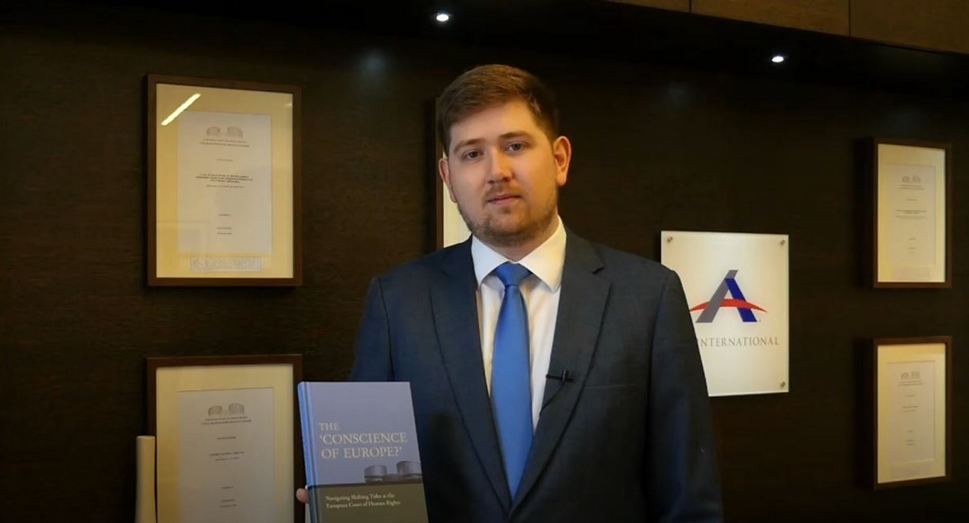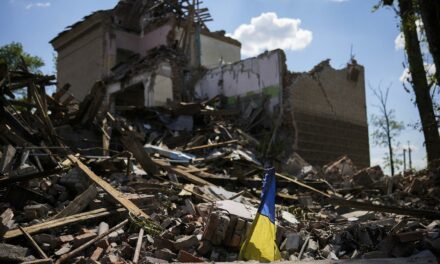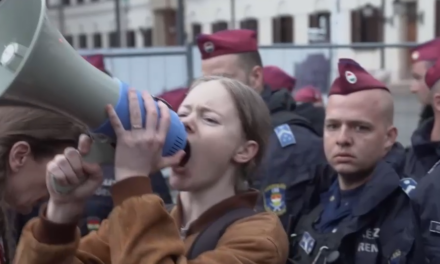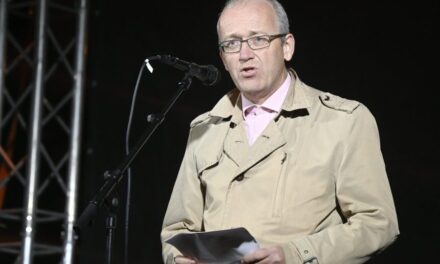Legal protection is not a liberal monopoly, warns ADF International. According to the Christian conservative rights protection organization, the basic value of Western democracies, freedom of religion is sometimes only a basic right on paper, and there are even examples of those who stand up for the teachings of the Bible and the Christian image of man being on the dock. The former Finnish interior minister, for example, will be responsible for quoting St. Paul's lines before the court. Robert Clarke, the deputy director of ADF International, gave an exclusive interview to Kossuth Rádió's Sunday newspaper program.
What is at the forefront of their operations? What are the main principles of ADF International?
We exert influence through the legal system to protect basic human rights and represent the inalienable dignity of all people. We provide support during legal proceedings in some countries, but also in international cases, in cases where someone faces legal proceedings because of what he believes in, whether it affects freedom of speech, marriage, family, protection of life and freedom of religion.
The topic of human rights is a very controversial issue these days. How do you define all this?
The modern approach to human rights was formed as a result of the experiences of the two world wars, there were undoubtedly discussions about it even then, but it was by no means strained by contradictions then, as it is today. It was accepted that general human rights are contained in fundamental documents such as the Universal Declaration of Human Rights or the European Convention on Human Rights, which deals with the right to life, freedom of assembly and speech, and so on. The reason why this issue is being debated more and more nowadays is because in recent years there have been advocates of so-called " new human rights" , which are no longer the universal rights described in the basic documents, but very controversial and controversial things. We, on the other hand, take exactly those basic documents as a basis.
The basic documents you mention are from the 20th century. If we want to go back to the roots of human rights, can we go back to the basic Christian or Judeo-Christian writings?
I believe that this is true and that many elements of this appeared in human rights documents of the 20th century, such as the Christian idea that man and woman were created in God's own image, as the Bible teaches. Well, the inalienable dignity of a person is something that must be protected.
Is religious freedom under threat these days? How can this be defended these days? Do you think there is more reason to worry about this in Western or Eastern countries?
If we talk about the freedom of religion, and especially that of Christians, it is a proven fact worldwide that the most persecuted religious community today is the Christian. We see challenges for Christians in both places, in the West and elsewhere. Of course, I am not saying that these challenges are the same. Being a Christian in a Western European country is completely different than living as a member of the Christian minority in, say, Pakistan, where for a Christian, for example, legislation on blasphemy can be difficult. The law is often used against Christians, who are often accused. There are also well-known cases like that of Aish Bibi, or the recent release of the Shagufta couple, who had been in prison on death row for a decade. I am by no means suggesting that Christians in the West are subject to the same, and that Western Europe is the same, but there are countless restrictions that make it difficult for Christians to live what they believe or to speak freely. There are Christians who get sued just for sharing a Bible quote, or prosecuted for expressing their faith in front of coworkers, or trying to educate their children at home.
Your organization has five main goals: freedom of religion, freedom of speech for all, parental rights, protection of life, and marriage and family. If we highlight parental rights, what are your main legal duties in this regard, and what are the main questions that arise around parental rights?
The first thing to say is that parental rights are protected by international law. It states that the family is the basic unit of society and as such a value deserves protection. And in this, parents play a critically important role, so their rights must be protected separately, namely that parents are responsible for raising their children. Children are born to parents and not to the state. Apart from those tragic cases when the child becomes a victim of abuse and has to be removed from the family. Except for these rare cases, society entrusts the parent to make decisions on behalf of their child, take care of, protect and raise them. Society depends on them. We saw this very clearly during the epidemic, when schools were closed, even if parents are not used to home schooling, yet the state itself asked them to keep them at home. This perfectly exemplifies the reality and essence of the primary responsibility of the parent. The Universal Declaration of Human Rights defines this as the parent's primary right, ahead of the state or anyone else, to raise their children.
Do you see parental rights as needing protection in Western societies today?
What is common these days is that some people talk a lot about the rights of children and less about the rights of their parents, and sometimes we even see them put the two in conflict with each other. This should never happen in such a way that the rights of parents and children are pitted against each other. Standing on the ground of law, but also standing on the ground of society, the fact is that parents have rights and, in addition, duties towards their children, but the decision belongs to them and not to the state. Often, however, it is not the child's decision that comes into conflict with the parent's regarding the right, but the state's. He intervenes and says that he is acting in the name of the child's rights against a decision that is the parent's decision. We can see this, for example, in relation to children's health treatments. There are some such high-profile British cases; for example, Alfie Evans was put on a ventilator, but also others, where the parents made a decision that they thought was in the best interest of their child, but the state stepped in and said that the parent's decision was not in the best interest of the child, " what we know better ” and impose our own determination.
Did you follow the international debate surrounding the Hungarian law, which was adopted in June, and which partly deals with the rights of parents in relation to their child's education? It's all about parents deciding whether or not their children should receive information about certain forms of sexual behavior from lobby groups. This was interpreted in the Western media, mostly in the mainstream media, as being homophobic. European institutions also intervened.
I'm not an expert in Hungarian law, but it seems to me that this law was adopted on the basis of a constitutional amendment and responded to a situation that we already see happening in other countries, that is, lobby groups are invited by schools to hold sex education classes, such on a deeply sensitive topic, in which the parent traditionally has the primary right to decide what information their child has access to. We know of cases where such school invitations were made without the parents being informed beforehand. So it seems to me, at least, that this law is a response to cases that we are already seeing in other countries.
Source: hirado.hu
Photo: ADF International












